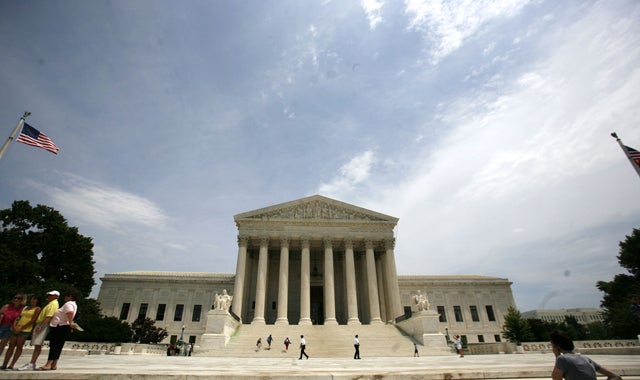Is the Supreme Court the Final Word?
Rich Tucker /
Supreme Court decisions are crucial, but they are not the final word. It’s our duty as American citizens to keep pushing back, through all three branches of government, against any proposal that violates the Constitution. That’s the way to make sure our union can endure for another 225 years.
Recently, the country marked the 225th anniversary of New Hampshire’s ratification of the Constitution, which made the document the law of the land. “Happy Birthday Constitution! Americans Still Don’t Get You,” National Journal’s headline proclaimed.
“In 2011, the University of Pennsylvania conducted a survey to see how familiar Americans were with their legal foundations,” the story noted. “The results were, well … we’ll just have to study harder for the next survey.” And indeed, it’s a bit depressing that a third of Americans couldn’t name a single one of the three (legislative, executive, judicial) branches of the federal government.
Still, the pollsters aren’t in a position to toss any stones out of their glass houses.
“Whose responsibility is it to determine if a law is constitutional? The president, Congress, or the Supreme Court, or are you not sure?” they asked. Roughly two-thirds gave the answer the questioners expected: the Supreme Court. But the 5 percent who said “the president” or the 16 percent who said “Congress” are not wrong, either.
Their answer, though, is incomplete. It is the job of each branch of the federal government to determine if a law is constitutional.
“Everyone who holds an office in the United States—the President, members of Congress, federal judges—takes an oath to uphold the United States Constitution,” The Heritage Foundation explains. “As the Supreme Court must dutifully and faithfully interpret the Constitution when determining the validity of the laws in the cases before it, so too must the members of Congress when they make laws and the President when he enforces them.”
This doesn’t always work in practice. When President George W. Bush signed the McCain-Feingold campaign finance reform law, he declared he had “reservations about the constitutionality” of parts of it. Thus, he should have vetoed the law and told Congress to start anew.
Some six years ago, Supreme Court Justice Ruth Bader Ginsburg wrote that she disagreed with her court’s decision in a discrimination case. “The ball again lies in Congress’s court to correct this court’s wayward interpretations of Title VII,” she noted, correctly. In a highly partisan vote two years later, lawmakers did just that.
This works at the state level as well. After Jennifer Gratz lost her discrimination case at the Supreme Court, “Gratz was soon jetting around the country, pushing for state ballot initiatives to accomplish what her lawsuit could not,” The Washington Post reports. “She helped win victories in a handful of states, reducing race and gender preferences in education, employment and contracting.”
As Heritage Founder Ed Feulner always says, we must remember that in Washington, there are no permanent victories—or permanent defeats.

